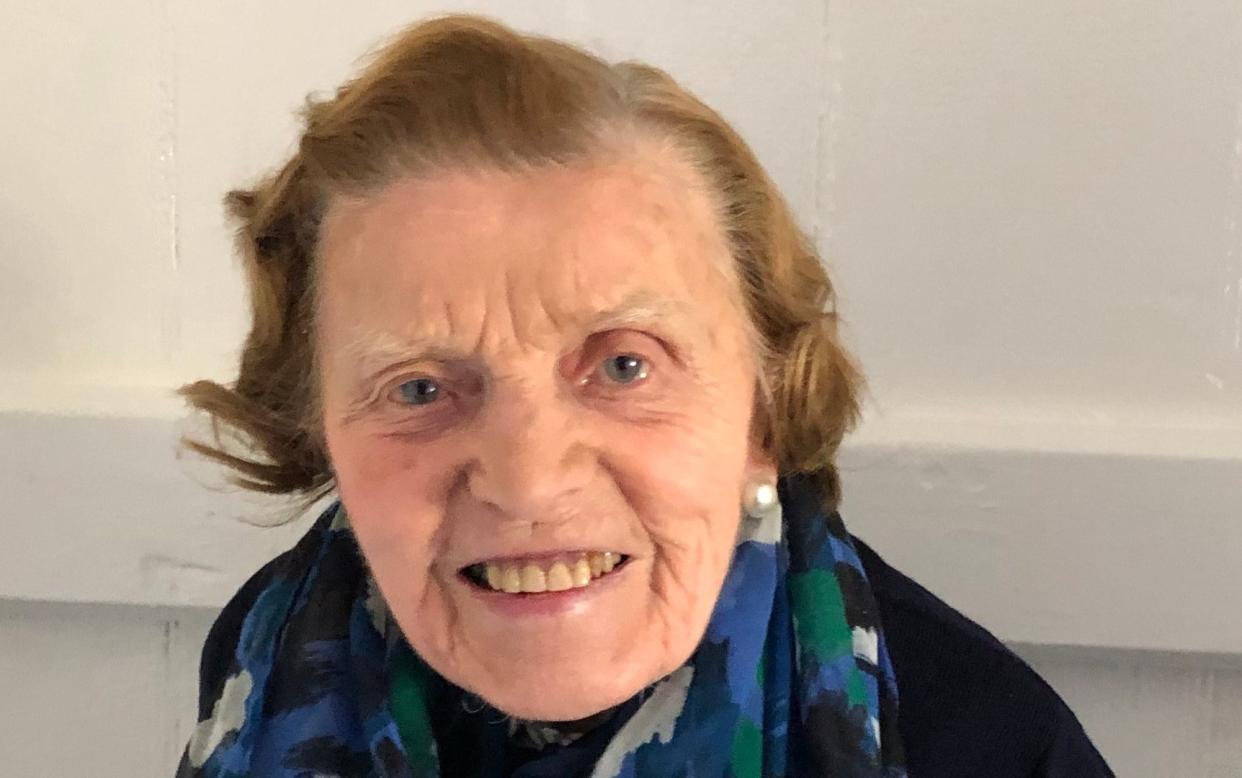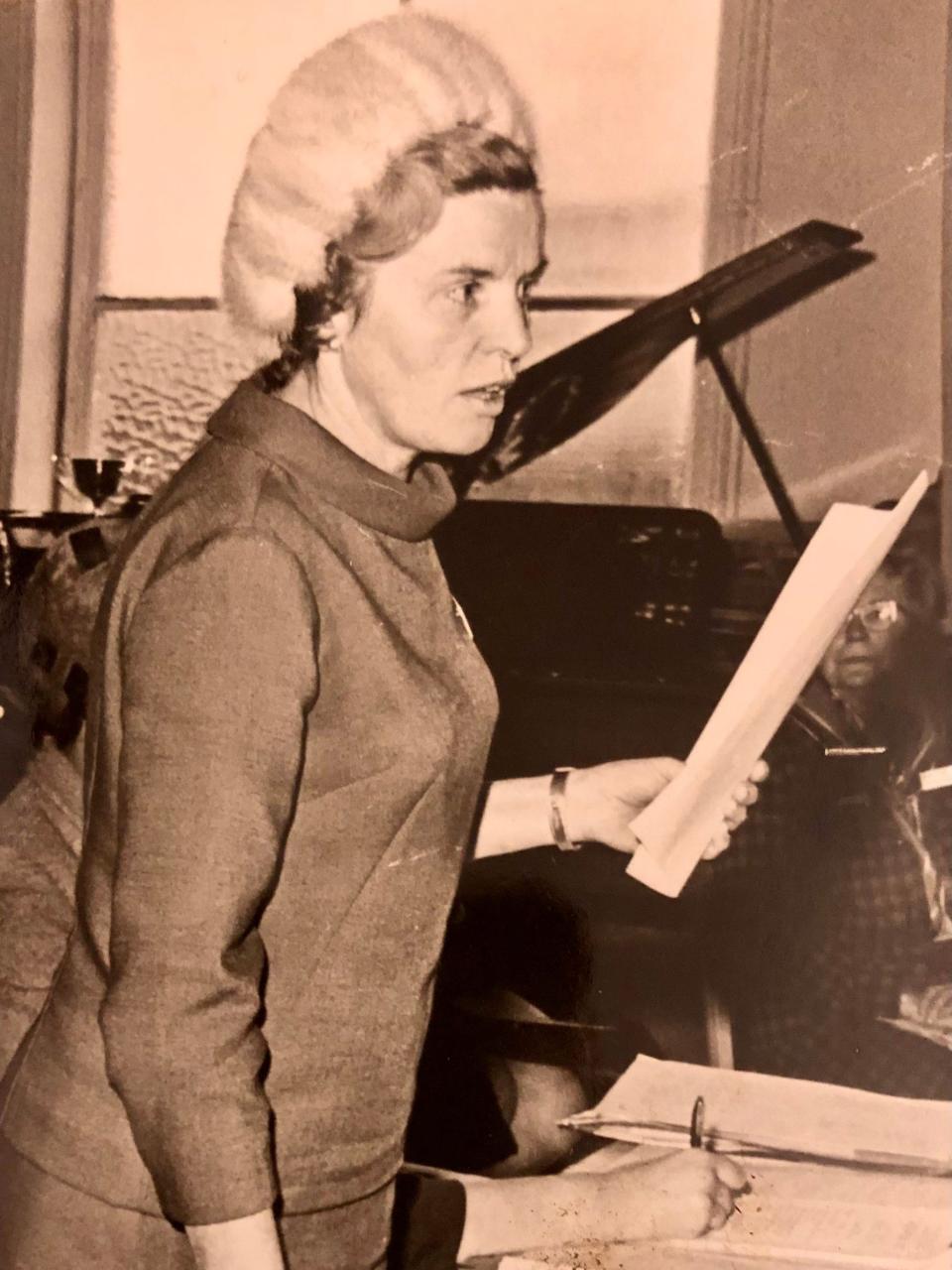Olive Clarke, rural stalwart and matriarch of the Young Farmers movement and the WI – obituary

- Oops!Something went wrong.Please try again later.
Olive Clarke, who has died aged 101, was a retired farmer, life-long volunteer and stalwart of country life in Cumbria – exemplifying the sort of devotion to public service and willingness to take on organisational roles which is fundamental to building strong rural communities.
She was born Olive Teasdale on May 19 1922 into a Westmorland farming family, the daughter of George Teasdale and his wife Sarah, née Fawcett. Educated at Kendal High School for Girls, in 1947 she married farmer Arthur Clarke, with whom she raised a family on Kaker Mill Farm in Preston Patrick.
Appointed OBE in 1994 for her role in campaigning to save the Settle to Carlisle railway as a chairman of the Transport Users Consultative Committee for North Western England, she also had stints as a magistrate, chairing the South Cumbria Magistrates’ Association during the 1980s, and as a parish and county councillor. But it was for her commitment to farming and to the Women’s Institute that she was particularly known.
She had joined the Hutton branch of the Young Farmers Club in 1938 aged 16, winning the YFC’s first ever public speaking competition the same year. Convinced that farmers needed to become more articulate in their dealings with public and government, she went on to become a tutor and adjudicator of public speaking competitions and remained much in demand as a speaker herself. When, aged 100, she gave a speech to the Worshipful Company of Farmers it was described as “a tour de force, the best speech ever heard from anyone at our livery lunches”.

Involved in many other farming organisations, she became seen as a matriarch of the young farmers movement, having served as the first female chairman for the Westmorland Federation of Young Farmers and President of Cumbria Young Farmers, of which she was made honorary life vice-president in 2013. In 2022 she was appointed Honorary Life President of the National Federation of Young Farmers’ Clubs. She received the rare accolade of direct election as a Fellow of the Royal Agricultural Society and last year was presented with a Special Recognition Lifetime Achievement award by the British Farming Awards.
Olive Clarke attended her first WI meeting at Old Hutton WI aged 17 months, sitting on her grandmother’s knee. She joined the group in 1938 and confessed to a “lifetime addiction” to the movement. She had fond memories of “jam galore” made for the war effort, when a peripatetic canning machine did the rounds of WI halls. “I’m all for jam because it signifies home, and ‘Jerusalem’ signifies for me the wider outlook and the campaigns we’ve run to make things better,” she recalled in 2015.
She felt that the WI had “in a way” taken over from the suffragettes “in getting things done” and was particularly proud of the way local members had been encouraged women to take up the opportunity for cervical screening in the early 1970s. In 2010 the Cumbria-Westmorland Federation of Women’s Institutes appointed her its honorary life president.
Among other national and local organisations and charities too numerous to list, she was a greatly respected figure within the Country Landowners Association, served for 25 years on the Board of Visitors of Durham Prison and was appointed to the Review Committee for Parole. She was Commissioner of Inland Revenue for many years, served on bodies and charities concerned with health care and disability and, as a devoted churchwoman, served on the Deanery Synod of Carlisle Cathedral and, from 1999, as Trustee of its Development Trust.
She was appointed a Deputy Lieutenant of Cumbria in 1978 and was awarded the Queen’s Jubilee Medal in 1997.
Her husband died in 1975 and she is survived by their two daughters.
Olive Clarke, born May 19 1922, died December 18 2023

